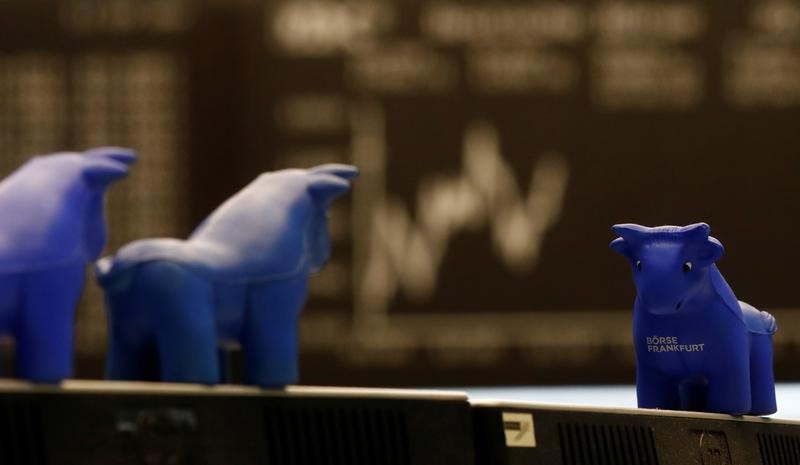This post was originally published on this site
https://i-invdn-com.investing.com/news/LYNXMPEE0E0CM_M.jpg
Investing.com – European stock markets edged higher Monday, bouncing back from a losing week, with the focus on the German Ifo business climate index as investors seek an improvement in sentiment at the Eurozone’s dominant economy.
At 03:40 ET (08:40 GMT), the DAX index in Germany traded 0.6% higher, the FTSE 100 in the U.K. climbed 0.5%, and CAC 40 in France traded up 0.7%.
European equities suffered heavy losses last week, with the German DAX almost 3% lower, after the European Central Bank eased the pace of its interest rate hikes but stressed significant tightening remained ahead as it fights elevated inflation.
This promise of more interest rate hikes ahead as well as likely weak economic growth has weighed on sentiment, but the final full week of the year has started on a more positive note with investors hoping for some improvement from the German Ifo business climate index for December later in the session, in what would be the third consecutive increase.
The report comes after PMI data last week showed that the downturn in German economic activity moderated for a second straight month, indicating that a likely recession in the bloc will be shallower than previously thought.
Also of interest will be comments by ECB Vice-President Luis de Guindos in Madrid later Monday, as investors look for more clues as to the thinking of the central bank policymakers.
In corporate news, Germany is also poised to take on the risks associated with €216 billion (€1 = $1.0629) of derivatives built up by energy giant Uniper (ETR:UN01), as it moves to nationalize the company hit hard by the region’s energy crisis.
This comes as European Union countries’ energy ministers meet in Brussels later Monday to attempt to agree upon a cap on gas prices.
Crude oil prices rose Monday, boosted by the decision of the Biden administration to begin refilling its strategic reserves as well as hope for demand growth from China in the new year.
The U.S. government said on Friday that it will initially buy 3 million barrels of oil for its reserve, having run the Strategic Petroleum Reserve down to its lowest level in nearly 40 years in a bid to curb rising fuel prices this year.
Additionally, China has abandoned its strict ‘COVID-zero’ policy, and while the world’s top crude oil importer and second-largest oil consumer is experiencing a leap in cases as it reopens, hopes are increasing that economic activity will expand in 2023.
By 03:45 ET, U.S. crude futures traded 0.3% higher at $74.67 a barrel, while the Brent contract rose 0.4% to $79.34. Both contracts were still trading near one-year lows, having logged steep declines in recent sessions on fears of a potential recession in 2023.
Additionally, gold futures rose 0.3% to $1,806.25/oz, while EUR/USD traded 0.5% higher at 1.0631.

